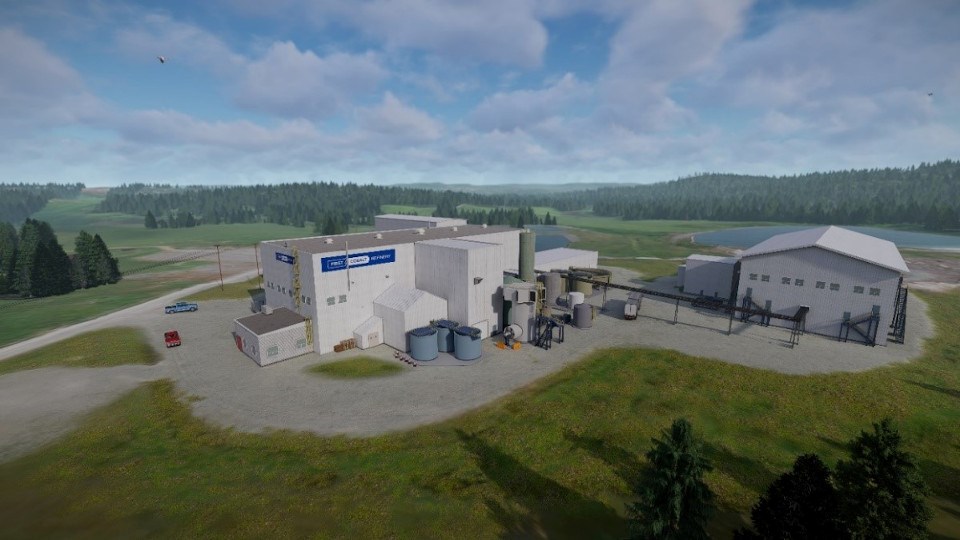The Toronto company behind the refurbishment of a mothballed Temiskaming hydrometallurgical refinery said it's going all in on creating a "battery park" to feed refined cobalt and nickel to the electric vehicle market.
First Cobalt announced it's making a name change and other strategic moves toward providing North American automakers with a domestic source of raw material with a proposed industrial park outside the town of Cobalt in northeastern Ontario.
In a news release, First Cobalt said its proposed Electra Battery Materials industrial park will be the only integrated battery materials complex in North America.
The company said it's in early talks with manufacturers to partner on the construction of a precursor facility – meaning to supply the battery-grade raw materials needed to make electric vehicle batteries – on its site by 2025.
Cobalt and nickel are key ingredients needed in the production of lithium-ion batteries used in electric vehicle (EV) manufacturing.
This will come after First Cobalt changes its name to Electra Battery Materials Corp., a move, management said, that will better reflect its vision for the future.
The company hinted last summer it would likely go in this direction based on the concept of the Harjavalta Industrial Park in Finland.
First Cobalt is refurbishing and expanding a refinery, outside the town of Cobalt, to begin production of refined cobalt for the electric vehicle market starting in the fourth quarter of 2022. The company plans to receive raw cobalt material from two mining companies in the Democratic Republic of Congo and process it into nickel sulfate for the EV market.
They've also been extensively studying and running lab trials on recycling spent batteries to recover the valuable metals, like nickel. First Cobalt has been testing these "black mass" feeds from recycled batteries and will be announcing results from test work and engineering studies in the coming weeks.
The company said it is also in talks with several nickel producers to potentially supply feed to the plant by 2024-2025.
Nickel sulfate production, First Cobalt said, is a "fundamental part" of its growth plan that will involve battery recycling, cobalt and nickel refining, and supplying material for lithium-ion battery producers.
First Cobalt attributes these ambitious moves to strong interest coming from electric vehicle car and cell makers in the lithium-ion battery space.
Last week, there were news reports that U.S. electric carmarker Tesla plans to open a factory to produce battery manufacturing equipment in Markham, the company's first plant in Canada.
If all goes according to plan, First Cobalt said its battery-grade refined nickel and cobalt production could supply enough material to build more than 1.5 million electric vehicle annually.
"Globalization has created an electric vehicle supply chain that is too long, too costly and increasingly unreliable," said Trent Mell, president and CEO, in a news release.
"Our automaker clients have a strong interest in greater localization of the upstream supply chain to achieve greater reliability, security of long-term supply, and a lower carbon footprint. With the continent's rich mineral endowment, the rationale for supplying battery materials through Asia into a growing U.S. EV (electric vehicle) market is not sustainable. Electra will act as a bridge between North American electric vehicles and a North American source of primary and recycled material, providing a low carbon solution for zero emission vehicles.
"We see serious strains in the automotive supply chain and we are still in the early innings of EV adoption. Beneath the surface are several other factors that are of concern, including carbon emissions associated with the current supply chain, resource nationalism, geopolitics and a race to secure raw material to power the vehicles of tomorrow."
First Cobalt has hired a CRU, a global consultancy firm, to do a nickel market study to assess market conditions for a battery-grade nickel sulfate plant in North America.


